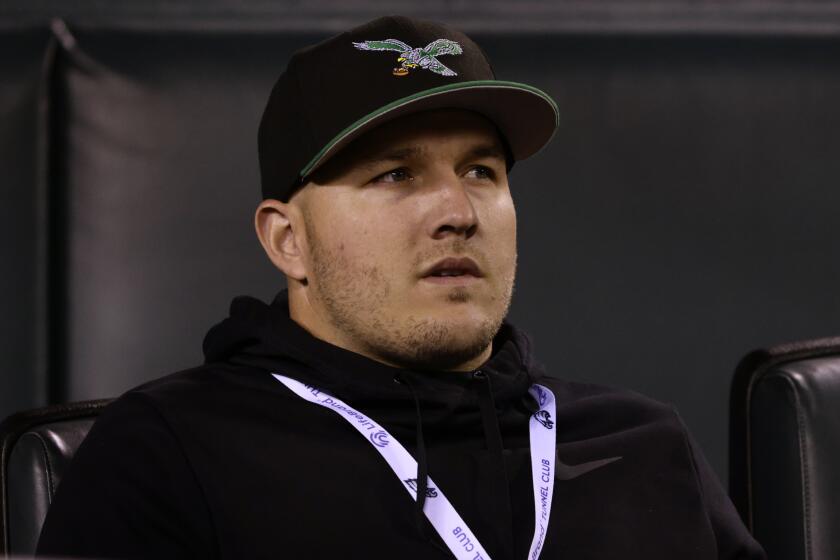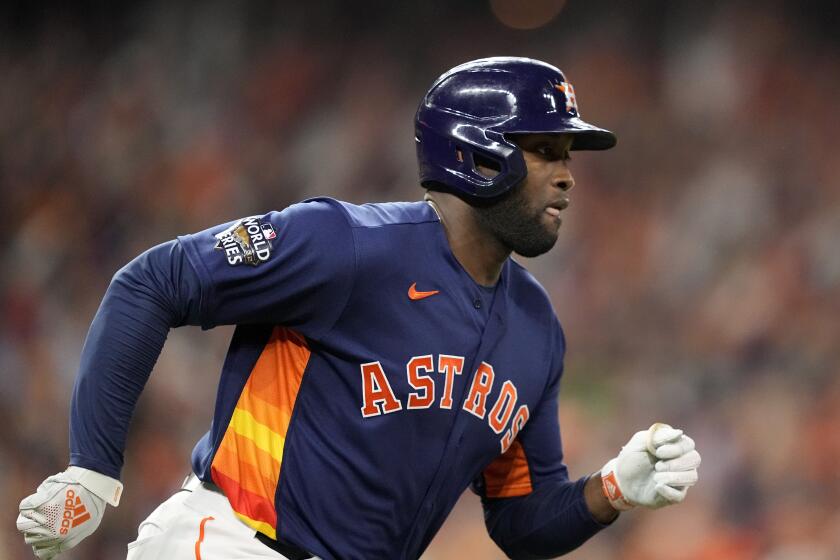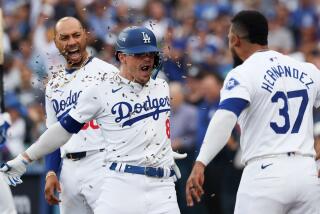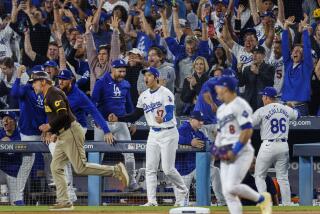Here’s why Phillies star Bryce Harper turned down $45 million a year from Dodgers
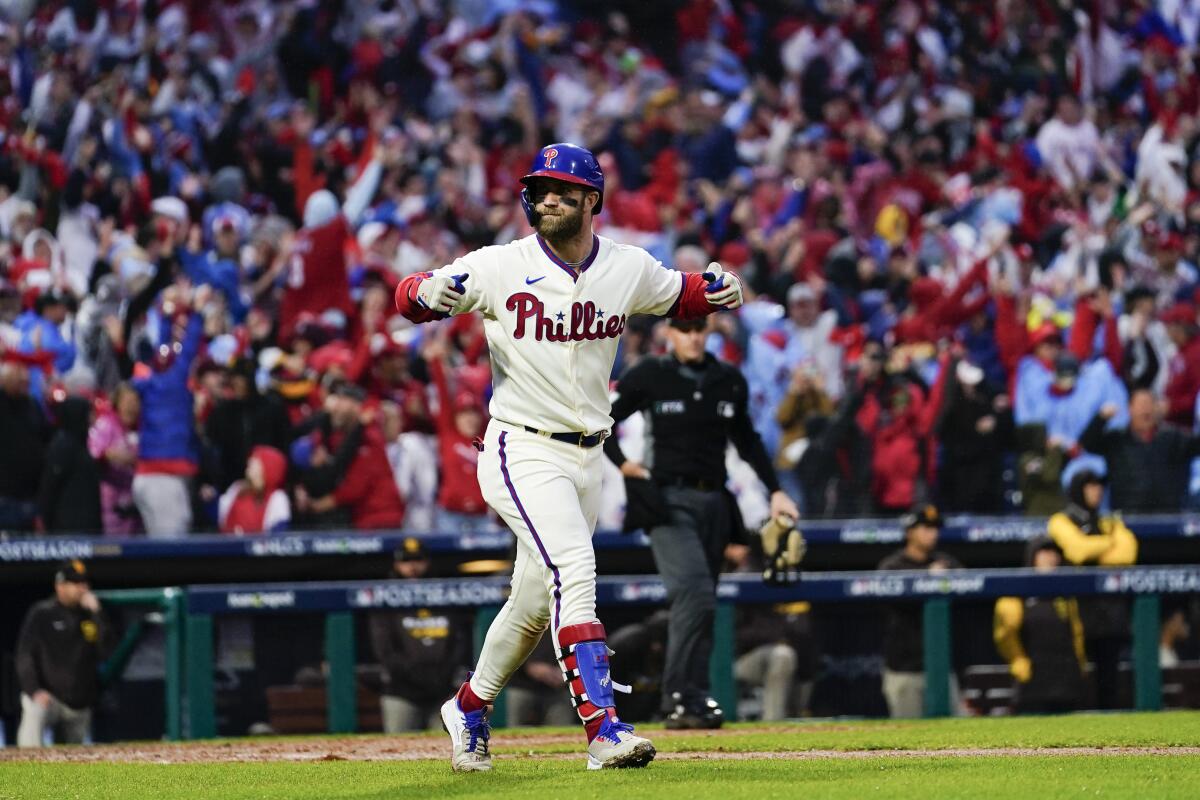
- Share via
PHILADELPHIA — The split-second decision that differentiates Bryce Harper from most of his peers was made before the swing that will be forever etched in Philadelphia sports lore.
Before driving a 2-2 count, 99-mph fastball over the outside corner the other way to lift the Philadelphia Phillies to the World Series, Harper chose not to swing. He instantly recognized a nasty changeup falling off the table from San Diego Padres right-hander Robert Suárez’s hand and laid off. It was a master class in plate discipline in the biggest spot of his career, in Game 5 of the National League Championship Series.
“The take on that changeup, I can’t say it enough,” Phillies hitting coach Kevin Long said recently. “He almost saw it out of the hand.”
Long continued: “I just thought to myself: ‘Something special can happen here.’ ”
Something did. Harper smashed a go-ahead, two-run home run, Citizens Bank Park exploded and the Phillies advanced to the World Series for the first time since 2009 to face the Houston Astros on Harper’s broad shoulders.
“I told K. Long before I walked up the steps,” Harper said after the game, “I said: ‘Let’s give them something to remember.’ ”
With the Philadelphia Phillies in the World Series, some wonder how good the team could have been with Mike Trout and Bryce Harper on the same roster.
In an alternate universe, one where this city would be still thirsting for a World Series appearance, the 30-year-old Harper isn’t Philadelphia’s favorite transplant. He’s a member of the Dodgers, nearing the end of a four-year contract before hitting free agency again this winter for another huge payday.
The Dodgers wanted that. In February 2019, with Harper inexplicably still on the free-agent market after players reported for spring training, a contingent of Dodgers officials traveled to Las Vegas, Harper’s hometown, to meet with the outfielder. The group included Dodgers majority owner Mark Walter, president Stan Kasten, president of baseball operations Andrew Friedman and manager Dave Roberts.
Harper was a one-time MVP and six-time All-Star in seven seasons with the Washington Nationals. He had a knack for big moments, supplying two significant home runs in his postseason career and winning the home run derby at his home stadium, Nationals Park, in 2018. He was, somehow, living up to the dizzying hype that followed him from high school to his major league debut as a 19-year-old wunderkind at Dodger Stadium in 2012.
The Dodgers offered Harper a four-year, $180-million contract, according to people with knowledge of the situation. The $45-million annual average value would have set the Major League Baseball record. But Harper sought a long-term contract because he sought a long-term home. The Dodgers refused to offer one. Days later, Harper signed a 13-year, $330-million deal with the Phillies, who beat the San Francisco Giants’ long-term contract offer.
“The skill of Bryce Harper has nothing to do with the pajamas he wears,” Scott Boras, Harper’s agent, said last week.
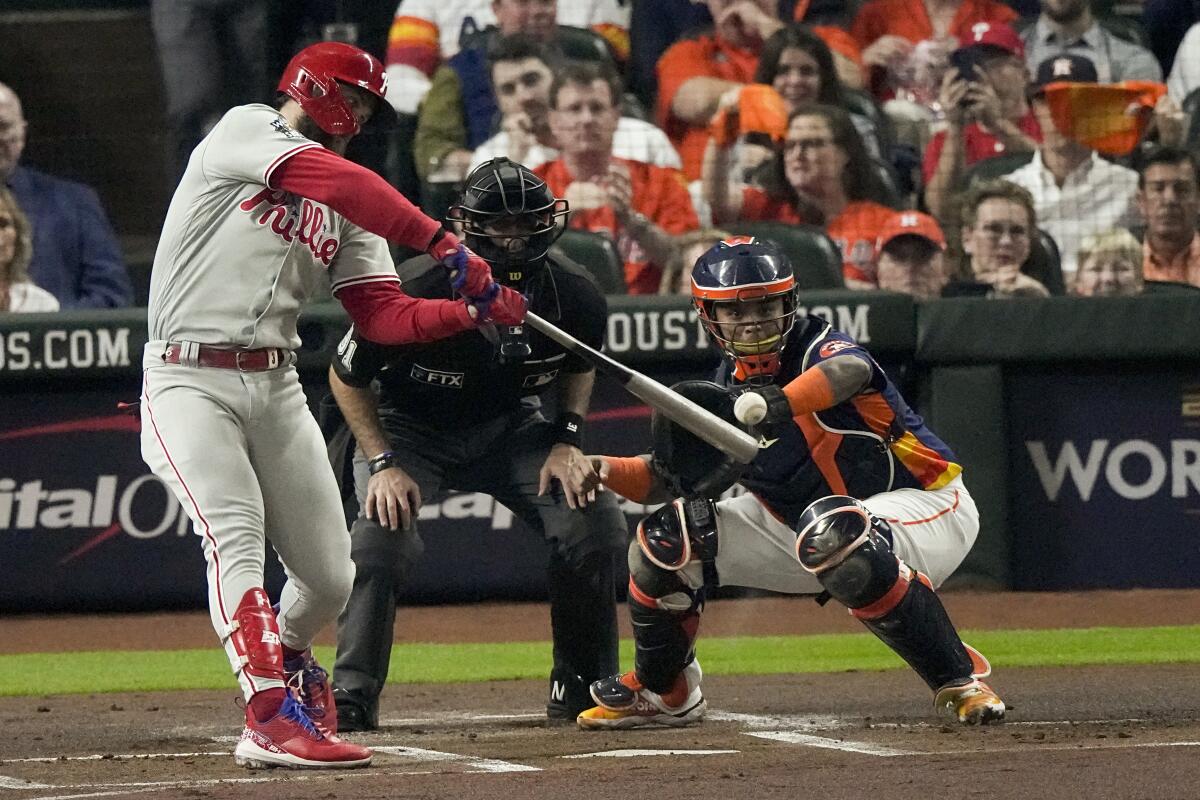
The Dodgers to that point hadn’t signed a free agent to a contract longer than four years under Friedman. Harper didn’t nudge them in a new direction.
That next offseason, however, the Dodgers were willing to adjust their strategy after losing in the NL Division Series, offering starting pitcher Gerrit Cole an eight-year, $300-million deal with deferrals. But Cole agreed to a nine-year, $324-million contract with the New York Yankees, leaving the Dodgers empty-handed in the free-agent superstar aisle until they acquired Mookie Betts from the Boston Red Sox in February 2020. Five months later, Betts and the Dodgers agreed to a 12-year, $365-million contract extension.
Effectively, in a roundabout way, the Dodgers chose Betts over Harper. That fall, Betts helped lead them to their first championship in 32 years. He finished second in MVP voting. He’s been an All-Star the last two seasons. The early returns have been good.
They have been in Philadelphia, too. Harper continued supplying elite power production in his first three seasons and winning the NL MVP award last year. Phillies outfielder Brandon Marsh played with Mike Trout and Shohei Ohtani on the Angels before he was traded to Philadelphia in August. He quickly realized Harper’s work behind the scenes was different.
“Being able to watch Bryce day in, day out for the last couple of months, through the ups and downs, he’s stayed the same,” Marsh said. “His work ethic, I mean, [is] the best in the game. He works his tail off and he gets rewarded for those moments like he did in the eighth inning in Game 5.”
Long was the Nationals’ hitting coach during Harper’s final season in Washington. He remembers a different Harper.
Yordan Álvarez was briefly in the Dodgers organization in 2016 before the team traded him. Now he’s an elite slugger with the Houston Astros and in the World Series.
“He would get fired up,” Long said. “He would be reckless at times. He would overswing. He didn’t know his body and his swing nearly as good as he does now.”
A broken left thumb sidelined Harper for two months this season. He returned in late August, Long said, “grinding really hard” to rediscover his rhythm. The work has been evident in the postseason.
Limited to designated hitter duties because of an elbow injury, Harper is batting .392 with five home runs and a 1.230 on-base-plus-slugging percentage in the Phillies’ 13 playoff games. He has a hit in every game but two — the Phillies’ postseason opener and their Game 2 loss to the Astros on Saturday.
He’s the player they paid for, a talent with the eye to take a darting changeup and the power to square up a fastball on the black within a minute under the brightest lights. Nine years remain on his contract, nearly another decade to thrill in red and white. Philly is home, and Los Angeles is just a what-if.
More to Read
Go beyond the scoreboard
Get the latest on L.A.'s teams in the daily Sports Report newsletter.
You may occasionally receive promotional content from the Los Angeles Times.

